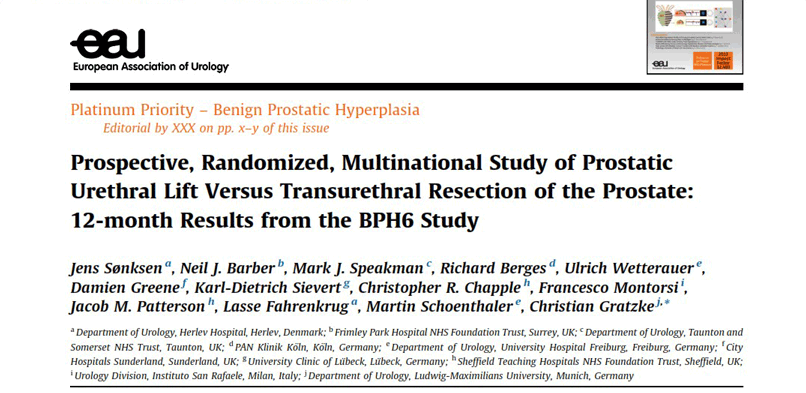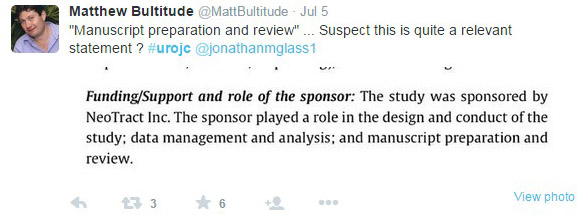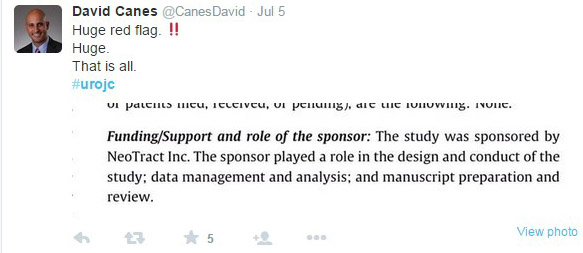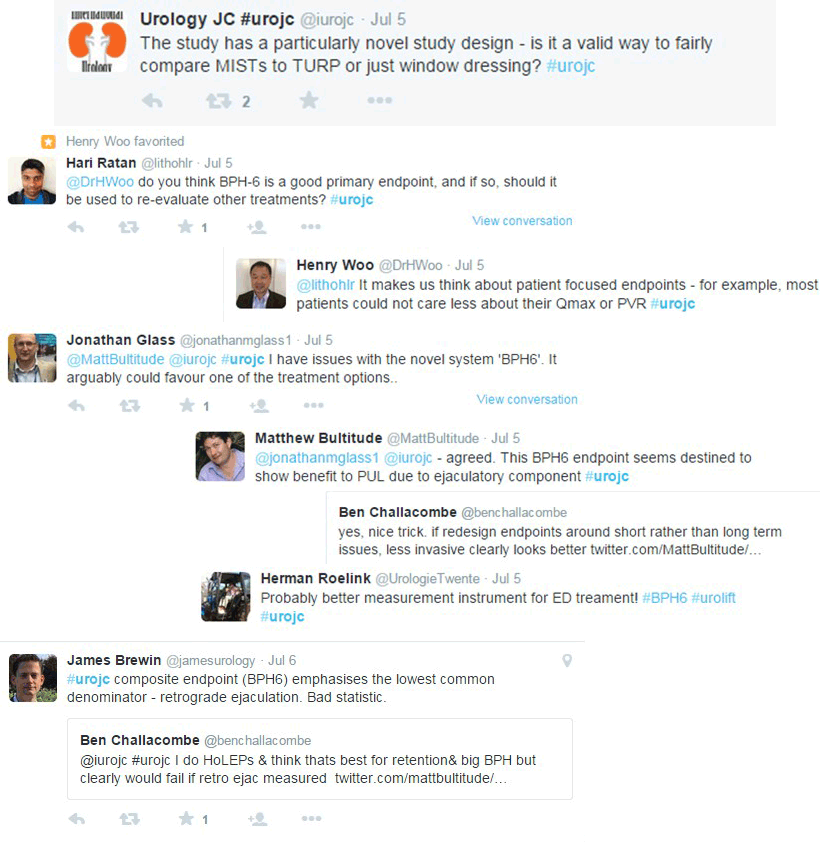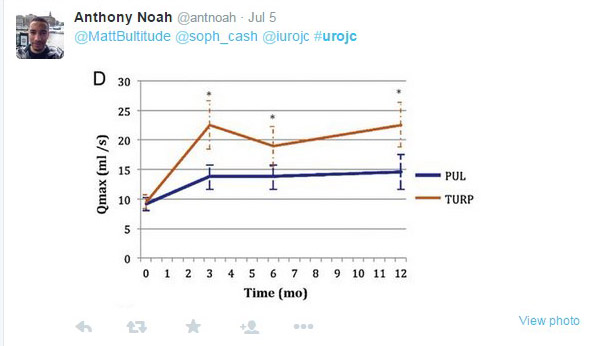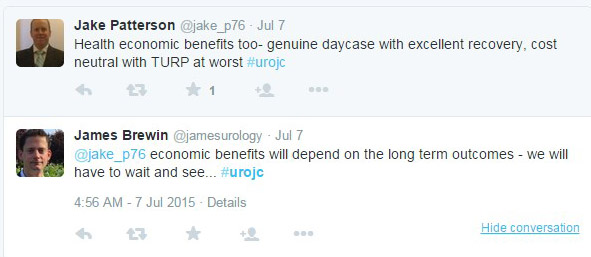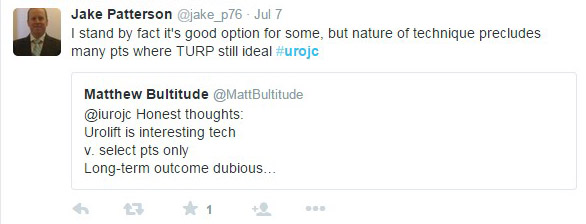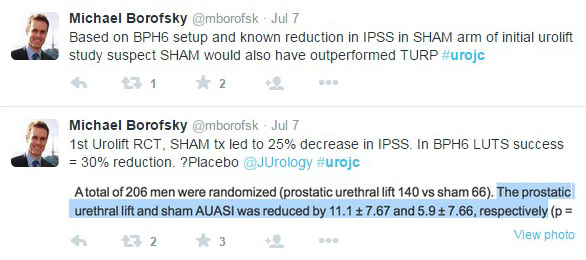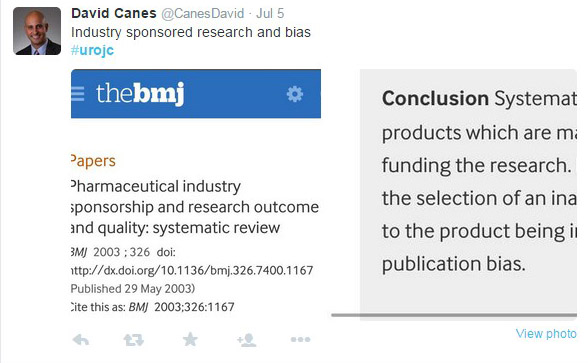Could Urolift stand the test of time for LUTS management?
Several new surgical technologies have been assessed during the last decades in order to improve the management of LUTS (Lower Urinary Tract Symptoms): HoLEP (Holmium laser enucleation of the prostate), HoLAP (Holmium laser ablation of the prostate), TUMT (transurethral microwave therapy), TUNA (transurethral needle ablation), HIFU (high-intensity frequency ultrasound) and more recently Greenlight laser vaporization. All these techniques have been compared to TURP (transurethral resection of the prostate), which it is currently considered as the surgical standard procedure for men with mid-size prostate gland associated with moderate-severe LUTS and obstruction.
This month, the #urojc tribe discussed a multicentric randomized trial of a new surgical treatment option for LUTS caused by prostate enlargement: the Prostatic Urethral Lift (PUL), which supposedly reduces the negative effects of other surgical therapies on sexual function. One important controversy of the article is the use of a composite end-point, the BPH6 that includes the assessment of 1) LUTS relief, 2) postoperative recovery experience, 3) erectile function, 4) ejaculatory function, 5) urinary continence preservation and 6) safety, a concept that may resemble the Pentafecta from the surgical treatment of prostate cancer.
The PUL vs TURP – BPH6 study seems to be a well done RCT that accurately follows the CONSORT
statement.
Despite of this, #urojc participants showed reluctance to accept the main outcomes of the study. Interestingly, comments about COI (conflict of interest) and the impact of the industry in manuscripts were mentioned…
People were not completely convinced about using a novel endpoint to compare TURP and PUL… the BPH6 seems to balance the impact of the 6 elements… or perhaps it gave more magnitude to the sexual side effects…
As usual in this #urojc, urologists mentioned specific details about the design and methods of the study…
And participants questioned about why authors emphasized in the manuscript specific points that may favor PUL over TURP…
Good discussion went throughout the 48 hours session, constructive comments about the study, and some other tweets revealed skepticism at this new technique….
And then, @sivanrij evoked the truth about LUTS (by the way, one of the most retweeted/favorited comments)…
Despite being something completely related to the type of health care system, and the specific conditions of each continent or region, costs were compared…
Some experts in PUL shared their thoughts…
Final thoughts were mentioned…
Only time will determine the real success of this novel therapy…
But some questions remain unanswered…
… And helpful references were mentioned…
https://www.bmj.com/content/326/7400/1167
#urojc Commentary on #BPH endpoints “Patients not p-values” by Rees @MattBultitude @CanesDavid @antnoah @soph_cash https://t.co/IMVK6DbAvL — Stacy Loeb, MD (@LoebStacy) July 6, 2015
https://www.ncbi.nlm.nih.gov/pubmed/?term=25885560
Classic Barry paper-BPH minimum clinically important difference #urojc @MattBultitude @CanesDavid @antnoah @soph_cash https://t.co/KDdzc0uZpy
— Stacy Loeb, MD (@LoebStacy) July 6, 2015
https://www.ncbi.nlm.nih.gov/pubmed/7563343
At this time we do not have any treatment options for LUTS/BPO that preserves the ejaculatory function, and PUL may be an option in selected cases; we should accept that it is another option to increase our therapeutic armamentarium…
#urojc demonstrates that Twitter is a powerful tool to share our scientific thoughts all over the world. #urojc gives the opportunity to discuss articles with world-wide experts and authors of the published articles. Following and participating in these discussing definitely opens our minds, expands our medical knowledge and contributes to offer better health care to our patients.
Daniel Olvera-Posada (@OlveraPosada) is a Mexican Urologist, trained at @incmnszmx, currently in his second year of the Endourology Fellowship (@EndourolSoc) at @westernu, in London Ontario, Canada.


